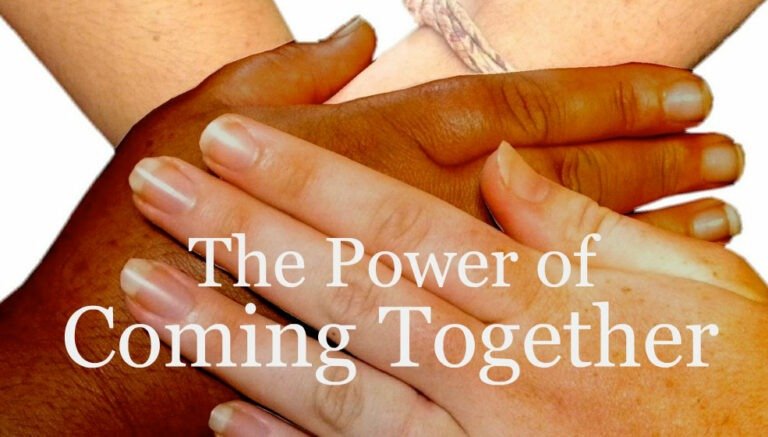Opioids for Chronic Pain: Gain Insider Advice

Do you worry about treating your chronic pain condition with prescription opioids? Do you want to learn how to reduce pain without medication and gain control of your pain care … and your life?
Dr. Beth Darnall, addresses these concerns and more in her book Less Pain Fewer Pills; Avoid the Dangers of Prescription Opioids and Gain Control Over Chronic Pain. We reached out to Dr. Darnall to learn more about the risks of opioids for chronic pain.
Beth Darnall, PhD, is a Clinical Associate Professor in the Division of Pain Medicine at Stanford University. She is a prominent pain researcher, educator, writer and speaker in the field of pain management, and has a Psychology Today blog column.
PP: Will you share your personal pain story?
I had chronic episodic pain as a child, but it wasn’t until young adulthood that I understood the close connection between stress and my pain. In late adolescence I went through a particularly difficult time. The person I was closest to passed away and I was a college freshman at an out-of-state school without any roots or social ties.
My pain increased greatly to the point that one day—with escalating fear and nowhere else to go—I sought emergent medical care. To their credit, the ER docs performed all the standard tests to determine what was causing my pain.
All of the test results were negative, so the confusion remained. I just wanted to know what was wrong so it could be treated and made better. I was sent home with a bottle of Vicodin, and because the pain persisted, so did that prescription. Opioids were the only pain solution offered to me by the doctors, so I took the medication as prescribed.
Fortunately, about six months later I determined the pain medication wasn’t making my pain better, it was making me apathetic. I didn’t need a prescription, I needed education about pain and how one’s psychological factors—such as grief and catastrophizing—lead to escalating pain.
I also needed to learn skills so I could self-regulate my pain and the stress it was causing me so I could gain control of the pain cycles. I was never referred to a psychologist skilled in pain treatment, and I didn’t even know such an expert existed. I had to figure it out myself the hard way.
I now teach pain skills management classes, lecture nationally and internationally, conduct pain psychology research, and write to disseminate the information I wish I had when I was 19. Twenty-five years later, that information is more important than ever.
PP: What do you want pain sufferers to understand about opioids?
Opioids come with substantial risks when used long term, and the risks vary by the individual. The whole first half of Less Pain, Fewer Pills focuses on opioid education.
Some people mistakenly believe I am anti-opioid. To the contrary, I have seen opioids help a minority of patients tremendously, meaning that they become more engaged in life and better able to function while taking reasonable doses. I believe that people need to make informed choices about opioids, and in order to do that they need to know about all their specific risks.
Part of my inspiration in writing Less Pain, Fewer Pills was working with countless patients who felt they were caught in a “gotcha” with opioids because they were having major problems and side effects that were equally as problematic as their pain. It was common for me to hear, “If I had known this upfront, I never would have started this medication.” And they felt trapped because they were physiologically dependent on the medication.
A second major point is that tapering slowly off of opioids frequently results in less pain. Many people taking opioids mistakenly believe that their pain will worsen if they stop the medication. If opioids are stopped too quickly, withdrawals will result and pain will certainly spike. But a very slow taper can be comfortable, particularly when paired with some key relaxation skills.
Multiple studies have shown that on average, decreasing opioids slowly leads to lower pain levels—or the exact same pain—without the drugs. And, mood and quality of life tend to improve. The key is to taper wisely. With a slow taper, physical stress is kept low (withdrawals are avoided) and psychological stress is kept low because you have confidence in the formula. Less Pain discusses this in detail.
PP: So, how can people gain control over their chronic pain?
People can gain control by understanding that they are the most important person on their pain management team. Successful pain management is comprised of all of the good choices the individual makes every day; we call this self-management.
Good self-management includes appropriate activity and exercise balance, pain and stress management skills, sleep balance, and a focus on mental health. Pain management skills can be learned by working with a pain psychologist or a mental health therapist with pain management expertise. Essentially, individuals learn how to calm their own nervous system. Doing so regularly allows one to have less pain, less distress, and to need fewer pills to manage symptoms.
Chronic pain causes tension throughout the body, and it leads to central nervous system changes that make one more sensitive—more sensitive to pain, and also more sensitive to the effects of stress. It’s critical that people understand how pain and stress can lead to more pain, and what they can do to dampen pain processing in their own nervous system.
In addition to pain psychology skills, mindfulness based stress reduction (MBSR) is also evidence-based, skills-based treatment for pain. It’s important to learn these types of active ways of managing pain. Relying only on the doctors and the prescriptions to fix pain can lead to a lot of pills and medical visits. Perhaps worse, it contributes to feelings of helplessness because one never learns how to help oneself feel better—mentally, emotionally and physically. It’s all related.
PP: As a pain psychologist, what is your best advice for our readers?
Become passionate about learning everything you can about behavioral pain management—the things you can do yourself to reduce pain. In doing so, you will become empowered to best help yourself, thereby relying less on doctors and medical treatments.
Read books, articles, watch videos on the topic. Visit the American Chronic Pain Association website—they have great resources for people living with chronic pain. And, if you have the chance, work specifically with a psychologist or mental health professional who is very skilled in evidence-based pain treatment. Unfortunately, there is a shortage of skilled pain psychologists in the U.S., which is another reason why I wrote Less Pain, Fewer Pills. My goal was to give people access to a pain psychologist in a book.
PP: Is there anything else you’d like to share about your book?
The book is good for any individual living with chronic pain. I also hear from medical professionals that it has helped them better understand the interface between pain and psychology, and how opioids interface with both. The book is packed with patient stories that people can relate to.
Even if people decide to remain on opioids, the book focuses on helping them need as little of the medication as possible, and it guides mindful use.
It comes with a binaural relaxation audio CD and audiofile, tips for successfully tapering off opioids (if that is the goal), and readers develop a personal plan for pain control. Its pain psychology in a book for people wishing to minimize opioids and other medications, or just manage pain better.
For more information on opioids for chronic pain, read our Opioids Facebook Chat Transcript and Cancer, Opioids and the Future of Pain Management.
To learn more about Dr. Darnall and her message visit her website and watch her video, Unlocking the Medicine Box in Your Mind:https://web.archive.org/web/20201201182523if_/https://www.youtube.com/embed/GeqLbJRci1Y?feature=oembed
PainPathways Magazine
PainPathways is the first, only and ultimate pain magazine. First published in spring 2008, PainPathways is the culmination of the vision of Richard L. Rauck, MD, to provide a shared resource for people living with and caring for others in pain. This quarterly resource not only provides in-depth information on current treatments, therapies and research studies but also connects people who live with pain, both personally and professionally.
View All By PainPathways






